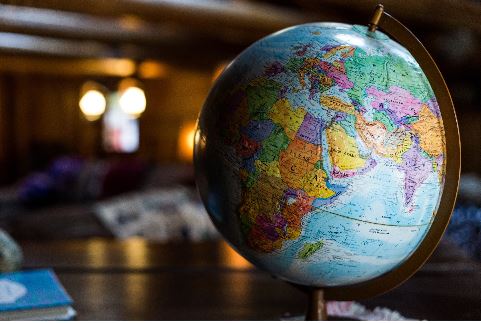
Photo by Kyle Glenn on Unsplash
The Covid pandemic has had serious repercussions for the world, including in Africa where many countries are struggling to cope with the social and economic demands caused by the virus. While these are extremely grave and deserve our utmost attention, there are still opportunities to look forward to.
The African Continental Free Trade Agreement, (AfCFTA) is due to come into effect on New Year’s Day 2021, bringing all 55 member states of the African Union under the same trading umbrella. It will unify a market of over 1.2 billion people, create a combined GDP of around $3.4 trillion, and lead to a growth in several industries across the continent. This article looks at the areas that could benefit the most.
E-commerce (cashless payments)
E-commerce is growing quickly in Africa, and many Africans trade on the internet every day.
However, until recently, certain barriers held the sector back from realising its full potential, with logistics being the most significant. Many cities don’t have an address system, so it’s difficult to send goods to an internet user via mail. There’s also the added problem of border checks: goods are subject to strict custom protocols and possible prohibition.
The AfCFTA seeks to change this. One of its cornerstones is frictionless interregional trade, which means investment towards reducing the red tape and costs that impede transactions between African nations. Increased cooperation between member states would make the flow of goods over borders much easier and improve communication between local agents who know how to find the required destination without difficulty.
African digital payment platforms are also improving, so buyers can make payments seamlessly and can be confident that the money reaches its intended target.
It’s good news for online merchants who can look forward to better business opportunities thanks to these advances.
iGaming
iGaming is one of the fastest-growing industries in the world, with a multi-billion-dollar value and a strong presence in most of the world’s markets. Until recently, however, Africa has stayed slightly off-radar, with much of the population without internet access.
Yet Africa is coming into the fray. Recent statistics show that nearly 40% of the population now have internet access, a big jump from a few years ago. iGaming sites are wise to this and are keen to get their market share: online casinos offer perks such as no deposit bonuses and sports betting sites push special offers to try and get players on board.
The obvious downside of this is a rise in gambling addiction, which has been noted in countries such as Kenya – and there is a need for responsible gambling guidance to warn new players of its consequences.
Still, African governments have it within their power to introduce protective legislation and encourage responsible gambling. Improved cooperation will make it easier to come up measures that work across the African Union.
Regional trade
When the first Covid-19 wave hit in March 2020, there were fears that the global trading system would collapse due to the economic disruption caused by strict lockdown measures. These forecasts have turned out to be pessimistic, however, with trade statistics staying surprisingly robust.
Kenya, a traditional barometer for East Africa as a whole, has reflected this global trend. After an initial shock in April, their trade figures bounced back during the summer with significant jumps in trade volume, according to a Brookings Institution report. Central to this resilience is the country’s regional trade figures, which have benefitted from swift government measures, such as the creation of mobile labs on borders for Covid testing so that trade can continue undisrupted.
While the situation is still not perfect, other East African countries, such as Uganda and Tanzania, have been on board with the measures and the hope is that this increased co-operation will make future trade easier.
The introduction of the AfCFTA in 2021 will help to simplify customs processes further and reduce tariffs, saving billions of dollars along the way.
With the agreement seeking to increase intracontinental exports by more than 81% by 2035, the continent’s future in regional trade looks bright.
Foreign investment
A united economic union with a bright future is an extremely attractive option for outside investors. Trade development programmes between some African countries and nations such as China and South Africa already exist, while Africa’s growing tech sector is attracting funding
from the likes of Google and Facebook.
While most foreign investment goes to a small number of African nations at present, the AfCFTA will seek to increase funding to less developed countries like Chad and Sierra Leone. Representatives from South Korea recently spoke about increasing their influence in sub-Saharan Africa, with the area deemed to be an area set to benefit greatly from the AfCFTA agreement.
The benefits of this could be huge. Significant investment would help lift millions of people out of extreme poverty, creating long-term job opportunities and improved infrastructure.
Often investment breeds further investment and a trickle of outside funding has the potential to turn into a flowing river should the AfCTFA prove a success.
Africa’s long-term future
The potential areas of growth helped along by the AfCTA might be clear to see, but that doesn’t mean there won’t be challenges along the way.
Opponents of global free trade complain about the income inequality that it causes, and African nations will have to ensure that they do commit to social causes, such as helping their citizens out of extreme poverty and improving their national infrastructure.
Yet in a continent ravaged by internal conflict over the last century, a comprehensive trade agreement is its best hope towards meeting its long-term goals and accelerating its growth in these four fundamental areas.




